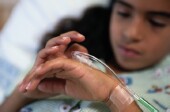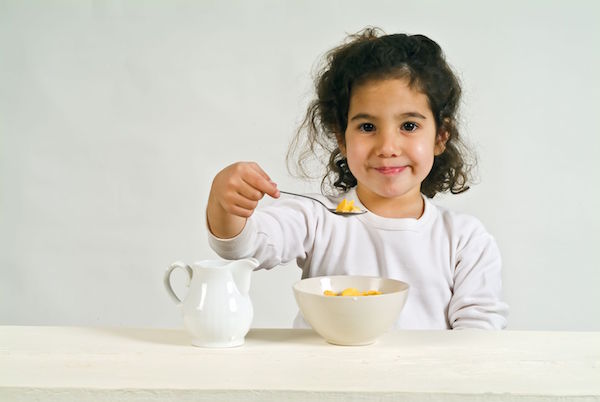
FRIDAY, Jan. 25 (HealthDay News) — Children taking the common painkillers known as nonsteroidal anti-inflammatory drugs may be at risk for acute kidney damage, particularly when the kids are dehydrated, a new study finds.
Nonsteroidal anti-inflammatory drugs (commonly called NSAIDs), such as ibuprofen (brand names Advil and Motrin), naproxen (Aleve) and ketorolac (Toradol) are used to relieve pain and fever.
“The one thing we did see that seemed to be connected to kidney damage was dehydration,” said lead researcher Dr. Jason Misurac, a nephrologist at Indiana University School of Medicine in Indianapolis.
For the study, which was published in the Jan. 25 online edition of the Journal of Pediatrics, Misurac’s team looked at the medical records of children admitted to Riley Hospital for Children in Indianapolis from 1999 through mid-2010. Over that time, they identified more than 1,000 cases of children being treated for kidney damage.
In nearly 3 percent of the cases, the damage was related to NSAIDs, the study found. Most kids were teens, but four were under 5 years old. All of them had been given NSAIDs before being hospitalized. Since many other cases involved several causes of kidney damage, it is possible some of those also were related to NSAIDs, the researchers said.
Most children who developed kidney damage had been given the recommended dose and had not been taking NSAIDs for more than a week.
In adults, taking NSAIDs regularly for several years has been tied to kidney problems, according to the U.S. National Institute of Diabetes and Digestive and Kidney Diseases. Cases involving children have previously been reported but only rarely.
Misurac noted that most of the children in the study hadn’t been drinking well and also were vomiting and had diarrhea, all of which can lead to dehydration. When someone is dehydrated the kidneys have a way of protecting themselves, which NSAIDs block, resulting in the damage, Misurac explained.
“Certainly in the way NSAIDs affect the kidneys, it’s reasonable to think that dehydration plus an NSAID has more of an effect than just an NSAID by itself,” he said.
Often the signs of kidney problems aren’t apparent, Misurac said. One sign is a decrease in urine; another is stomach pain. “But most kids who have episodes of acute kidney injury have nonspecific symptoms and there’s no one way to tell,” he said.
“If kids are dehydrated and not drinking well, then parents should think twice about using NSAIDs,” Misurac said. Tylenol (acetaminophen), which acts differently than NSAIDs, might be a better choice for children, he said.
For many of the children in the study, the kidney damage was reversed, Misurac said. The damage, however, was permanent for seven patients and they will probably need ongoing monitoring and treatment for declining kidney function, he said.
All the children under age 5 had to undergo dialysis and were more likely to be treated in an intensive-care unit, the researchers said. They also stayed in the hospital longer.
Although the study showed an association between taking NSAIDs and kidney problems in children, it didn’t establish a cause-and-effect relationship.
One expert agreed that NSAIDs can damage the kidneys.
“This is well known. Unfortunately, it is better known among doctors; the public is not as educated regarding this problem,” said Dr. Felix Ramirez-Seijas, director of pediatric nephrology at Miami Children’s Hospital.
Ramirez-Seijas said NSAIDs are “overused and abused, both by doctors and patients.”
For children, most fevers should not be treated; fever is how the body fights infection, he said. “There is a fear of fever that leads to overtreatment,” Ramirez-Seijas said.
In addition, children who take NSAIDs for aches after vigorous exercise also are at risk, because they may be dehydrated, Ramirez-Seijas said.
His advice to parents is to be sure children are well hydrated if they are going take NSAIDs. In addition, he believes that even these over-the-counter drugs should only be used with the advice of a doctor.
“Most people see taking a couple of Advil like taking a sip of water, but it’s not,” Ramirez-Seijas said.
More information
To learn more about painkillers, visit the U.S. National Library of Medicine.

